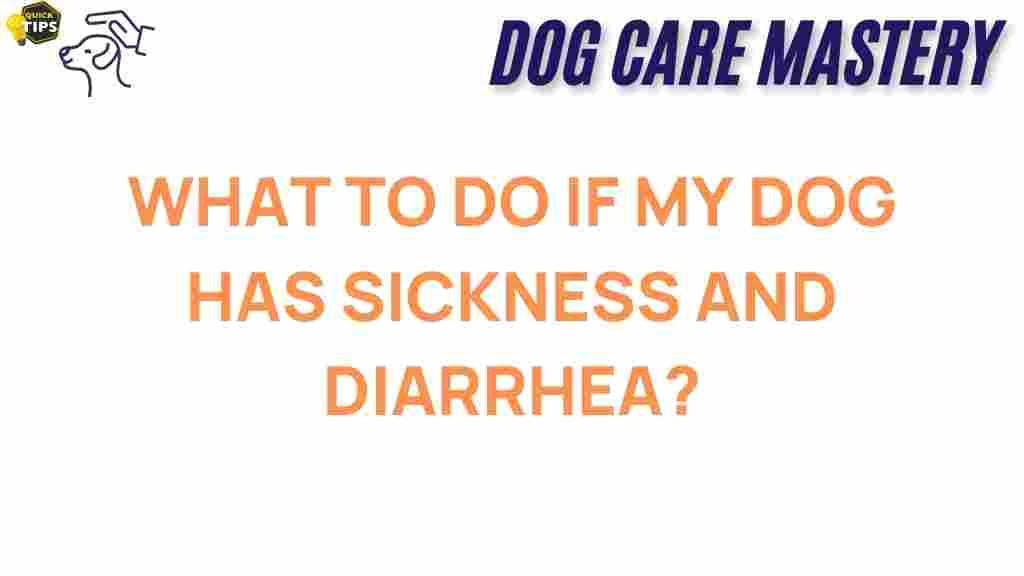Dog Diarrhea: Understanding the Causes and Solutions
As a devoted pet owner, noticing your dog has diarrhea can be alarming. Diarrhea in dogs is not only uncomfortable for them, but it can also lead to dehydration and other serious health issues if left untreated. In this comprehensive guide, we’ll explore the causes of dog diarrhea, how to manage it, and when to seek veterinary help. Understanding the symptoms and appropriate interventions will empower you to take effective action for your furry friend.
What Causes Dog Diarrhea?
Dog diarrhea can be triggered by a variety of factors. Understanding these causes is crucial for addressing the issue effectively. Here are some common reasons:
- Dietary Changes: Sudden changes to your dog’s diet can disrupt their digestive system.
- Food Intolerance or Allergies: Some dogs may have sensitivities to certain ingredients.
- Infections: Bacterial, viral, or parasitic infections can lead to gastrointestinal upset.
- Medications: Antibiotics or other medications may disrupt normal gut flora.
- Stress: Changes in environment or routine can cause anxiety, leading to diarrhea.
Recognizing Symptoms of Dog Diarrhea
Identifying diarrhea in dogs is generally straightforward. Look for the following symptoms:
- Loose or watery stools
- Frequent need to defecate
- Straining to defecate
- Abdominal discomfort or bloating
- Vomiting or lethargy (in severe cases)
What to Do If Your Dog Has Diarrhea
When faced with dog diarrhea, here’s a systematic approach to managing the situation:
1. Monitor Your Dog’s Condition
Keep a close eye on your dog’s symptoms. Take note of:
- The consistency and color of the stool
- Frequency of bowel movements
- Any additional symptoms like vomiting or lethargy
Documenting these details can be beneficial if you need to consult a veterinarian.
2. Withhold Food Temporarily
For mild cases of dog diarrhea, consider withholding food for 12 to 24 hours. This allows your dog’s digestive system to rest and recover. Ensure your dog has access to fresh water to prevent dehydration.
3. Gradually Reintroduce Food
After the fasting period, reintroduce food slowly. Start with a bland diet, such as:
- Boiled chicken (no skin or bones)
- White rice
- Plain pumpkin (not pie filling)
Gradually mix in their regular food over the next few days, watching for any signs of a return to diarrhea.
4. Hydration is Key
Diarrhea can lead to dehydration, so it’s essential to ensure your dog stays hydrated. Offer them:
- Fresh water
- Electrolyte solutions designed for pets
Monitor their water intake and look for signs of dehydration, such as dry gums or lethargy.
5. Use Probiotics
Probiotics can help restore healthy gut flora. Speak with your veterinarian about appropriate probiotic supplements for dogs to include in their diet.
6. When to Consult a Veterinarian
If your dog’s diarrhea persists for more than 24 hours, or if you notice any of the following symptoms, seek veterinary assistance:
- Severe vomiting
- Blood in stool
- Signs of dehydration (dry gums, excessive thirst)
- Signs of pain or discomfort
- Fever
It’s better to be safe and consult your veterinarian to rule out serious conditions.
Troubleshooting Tips for Dog Diarrhea
Sometimes, dog diarrhea can be tricky to navigate. Here are some troubleshooting tips:
1. Evaluate Their Diet
Check if you have recently changed your dog’s food or introduced new treats. If so, revert to their previous diet and see if symptoms improve.
2. Assess Environmental Changes
Consider any recent changes in your dog’s environment that could be causing stress. This could be moving to a new house or changes in family routine.
3. Check for Contaminated Food or Water
Make sure your dog’s food and water are clean and free from contamination. Spoiled food or dirty water can lead to gastrointestinal issues.
4. Keep an Eye on Other Pets
If you have multiple pets, monitor them for similar symptoms, as some issues can be contagious. If one pet is diagnosed with an infection, others may need to be examined.
5. Consider Possible Toxin Exposure
Be aware of potential toxins your dog might have ingested. Common household items like certain plants, medications, or human food can be harmful. If you suspect poisoning, contact your veterinarian immediately.
Conclusion
Dog diarrhea can be a distressing experience for both you and your furry companion. By understanding the potential causes and appropriate responses, you can effectively manage this condition. Remember to monitor your dog’s symptoms closely, ensure proper hydration, and seek veterinary assistance when necessary. Your proactive approach will help maintain your dog’s health and comfort.
For further reading on canine health, check out this informative article on common dog health issues. If you’re looking for products to support your dog’s digestive health, consider visiting this trusted source for recommended supplements and probiotics.
Taking care of your dog’s health is a rewarding responsibility. With the right knowledge and tools, you can navigate the challenges of dog diarrhea and ensure your pet remains happy and healthy.
This article is in the category Health and created by dogcaremastery Team
